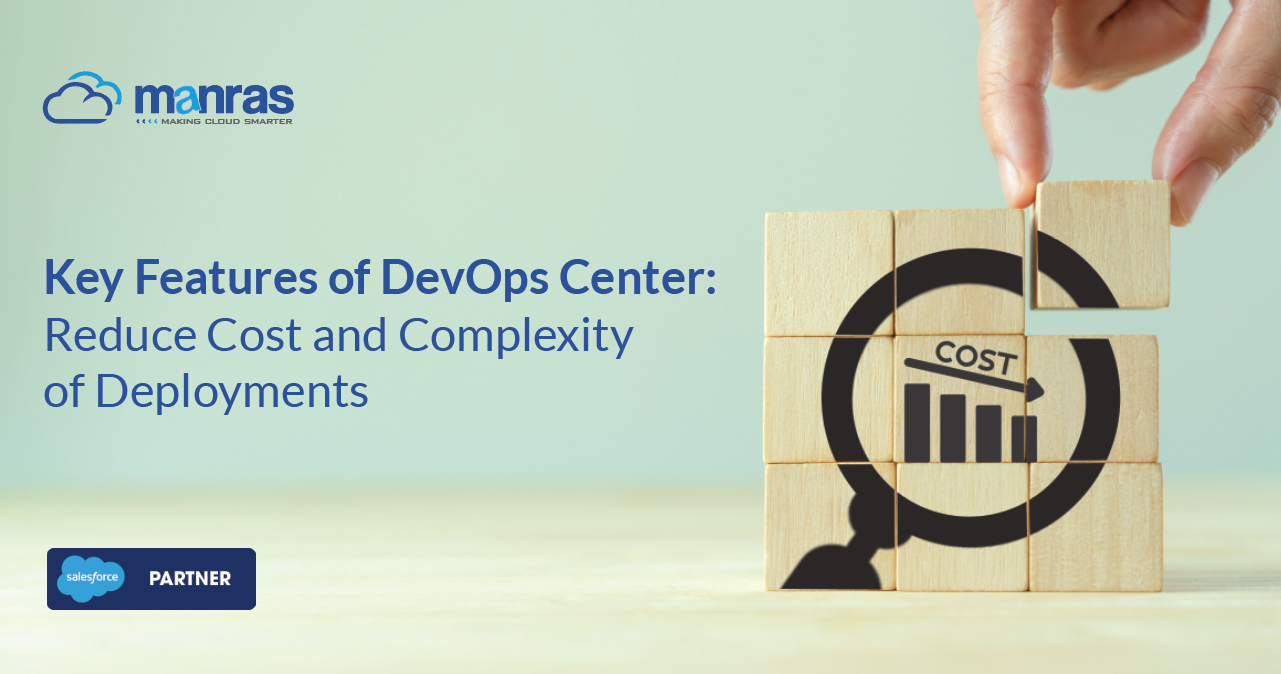
Key Features of DevOps Center: Reduce Cost and Complexity of Deployments
As organizations continue to rely on technology to drive their operations and stay competitive, the deployment of new solutions has become increasingly important. However, the process of deploying these solutions can often be complex and time-consuming. In an effort to address this challenge, Salesforce has announced the general availability of DevOps Center, a powerful tool that streamlines the development and deployment process on the Salesforce platform.
In this article, we will explore Salesforce DevOps Center in detail, discussing key components of DevOps, and how it can benefit organizations in their technology deployment processes.
What is DevOps Center?
DevOps Center is a solution offered by Salesforce that facilitates the collaboration, automation, and management of the development and deployment process on the Salesforce platform.
It provides a centralized interface for teams to manage their projects, workflows, and changes, allowing for more efficient and effective technology solutions deployment. It aims to improve DevOps practices and increase flexibility and control for the administrators to handle changes and release processes.
Key Features of DevOps
Salesforce DevOps Center offers several key features that simplify the development and deployment process, resulting in reduced costs and complexities. Some of these include:
- Improved Work Management with Work Items
DevOps Center introduces the concept of Work Items, which are references on a specific object that let teams keep tabs on and roll out changes, and can be operated against using Salesforce Flows and other platform operations. By providing a centralized place for teams to manage their work and related changes, DevOps Center makes it easier for teams to stay organized and work together to build, test, and deploy solutions.
- Automated Change Tracking for Accelerated Releases
DevOps Center automates the process of tracking changes made in sandboxes, which allows teams to easily promote relevant metadata components and ignore those that are not relevant. This eliminates the need for manual tracking methods such as spreadsheets, sticky notes, and change sets. As a result, teams can release technology solutions faster and with less effort.
- Flexible Pipeline Creation
Salesforce DevOps Center allows companies to create pipelines that suit each team’s needs and associate stages with sandboxes to build and test. By providing flexibility in the pipeline process, teams can adapt the development process to their specific needs, and have better control over their development pipeline.
- Seamless Source Control Integration
DevOps Center seamlessly integrates with source control systems such as GitHub, making it easy for teams to adopt version control and use it to centralize changes in source and enforce DevOps practices and governance. This is especially useful for teams who may be new to branch management, Git, or Pull Requests, providing an accessible way for them to get started.
- Effortless Change Migration and Deployment
The complete development pipeline is visualized by the DevOps Center, which also gives teams the ability to easily package changes and move them from one step of the pipeline to another. This user-friendly interface makes it easy for teams to understand the development process and make informed decisions about when and how to deploy changes.
- Support for Fusion Teams
The DevOps Center offers a solution that required low code, making it possible for all users, regardless of their level of technical skill to participate in the development pipeline and create business solutions. This allows teams to bring in different perspectives and skills to the development process, leading to more innovative and effective solutions.
Benefits of DevOps for Business
Salesforce DevOps Center is a powerful tool that simplifies the development and deployment process, resulting in a range of benefits that significantly reduces costs and complexities. Here are some of the key advantages that the Salesforce DevOps Center brings to the table:
- Improved IT-sales collaboration
The Salesforce DevOps Center improves app building with better tooling and provides increased visibility into customizing sales processes with visual pipelines and work items. This enables IT teams to give stakeholders better visibility into the project.
- Automated customer support
The DevOps Center lets administrators create flows in secure sandboxes to streamline customer service and simplify operations. This technology improves customer care efficiency and speed, making customers satisfied and giving companies more time to expand.
- Customization of financial services solutions
DevOps Center enables developers to customize financial services solutions with their preferred tools, and commit changes directly to the source control, thus improving collaboration and enabling teams to view and iterate changes easily in the Salesforce DevOps Center.
- Streamlined release management for health businesses
DevOps Center allows release managers for health businesses to bundle and migrate changes across sandboxes with clicks, which leads to faster delivery of better patient experiences, without having to deal with the complexity of change sets.
- Customer data insights with Genie
CIOs can use Salesforce DevOps Center to easily build flows and applications using the Genie Customer Data Cloud, which allows them to understand and utilize customer data more effectively and deliver actionable insights in real time and at scale.
Conclusion
In conclusion, Salesforce DevOps Center is an effective tool that streamlines the whole software development and deployment procedure, bringing about a wide variety of advantages that cut down on expenses and administrative burdens. By adopting DevOps Center, teams can release technology solutions faster and with less effort, improve collaboration, and stay ahead of the competition.
If you’re looking to implement DevOps Center in your organization, it’s important to work with a trusted Salesforce consulting partner. Manras, for example, is an experienced and reputable Salesforce consulting partner that can help your organization navigate the implementation process, providing you with expert guidance and support every step of the way.



